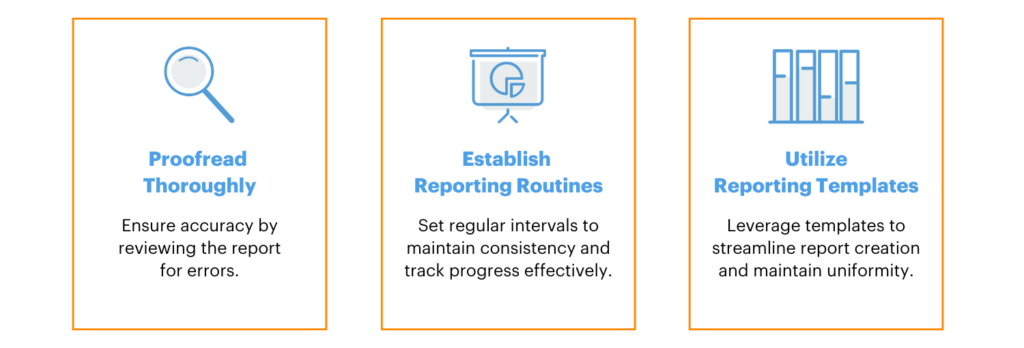Project reporting plays a crucial role in survey management by providing transparency, progress tracking, and effective communication with stakeholders. When you implement robust reporting practices, all parties stay well-informed about project status, objectives, challenges, and scope. This ensures any necessary adjustments to the project scope can be made promptly without significant delays and holds other team members accountable for their deliverables.
Project Reporting and Its Importance
Project reporting in survey management involves creating detailed documentation that outlines project objectives, progress, challenges, and outcomes. These reports serve as vital communication tools between project teams, stakeholders, and clients, providing insights into survey development and completion. By providing detailed insights into the development and completion of surveys, project reporting keeps stakeholders informed and engaged while fostering accountability and alignment with objectives among project managers.
Steps to Create an Effective Project Report
- Define Reporting Objectives: Identify the intent of the report and what information needs to be conveyed. For example, objectives might include survey progress, risks, or resource allocation.
- Understand Your Audience: Prior to creating the report, research should be conducted to determine which report type will best suit the audience. Depending on the client, simplified language may be preferred while technical stakeholders may require detailed metrics.
- Select Report Type for Project Needs: Whether the reports are being used for communicating or monitoring risk, it is important to select a report type based on project needs.
- Gather Relevant Information: Collect up-to-date data on survey milestones, completion rates, participant feedback, and challenges faced during implementation.
- Structure the Report: Organize the report into sections: executive summary, introduction, project details (progress, challenges, resource allocation), and conclusion.
Benefits of Transparent Project Reporting in Survey Management
Conducting transparent project reporting for survey management offers many benefits beyond organizing documentation. It encourages stakeholder engagement by providing full visibility into the project’s progress throughout the survey lifecycle. This transparency keeps stakeholders informed, leading to smoother execution of project deliverables. The facilitation of transparent reporting also allows for detecting potential obstacles early and deploying risk mitigation strategies, if needed. Transparent project reporting keeps all parties organized, informed, and accountable, enhancing the overall project outcome.
Tips for Effective Survey Reporting

Project Reporting at Knowledge Services
At Knowledge Services, we rely on our proprietary, cloud-based technology as a powerful tool for transparent survey administration, which allows us to closely monitor completion rates and provide real-time updates on project progress. Tracking essential metrics such as response rates and participation refusals enables surveyors to transparently adapt projects and explore alternative survey completion strategies. These project adaptations help address outdated demographic information to support informed decision-making. In our mission to serve those who serve others, we value collaborative feedback and actively engage with clients to review survey insights, identify improvement areas, and implement best practices. This enhances overall survey quality and client satisfaction while maintaining transparent project reporting throughout the survey lifecycle.
Transparent reporting is essential for efficient survey management, as it ensures clear communication and client engagement. By setting clear reporting objectives and structuring reports intentionally, managers can keep clients informed about project status. This transparency builds accountability, improves communication, and streamlines decision-making. To learn more about our Survey Management services, contact Knowledge Services today.





